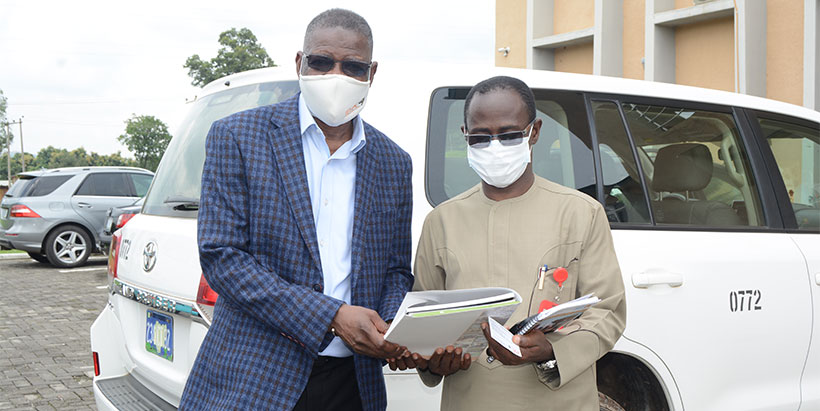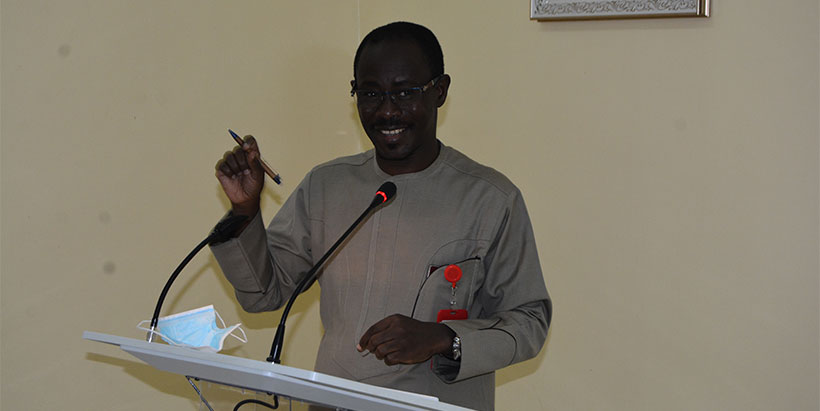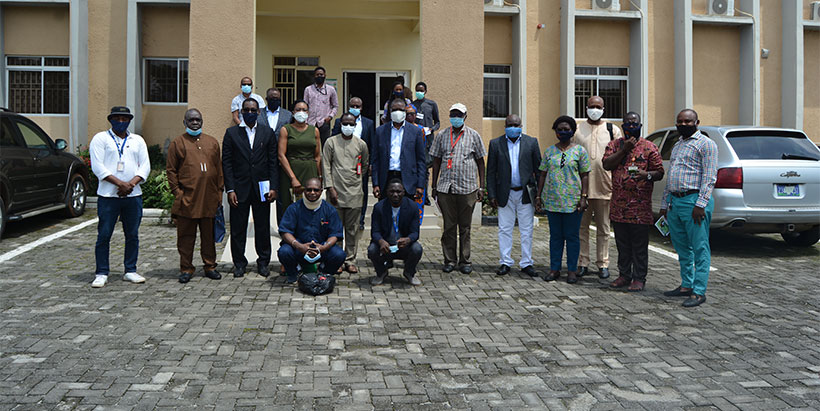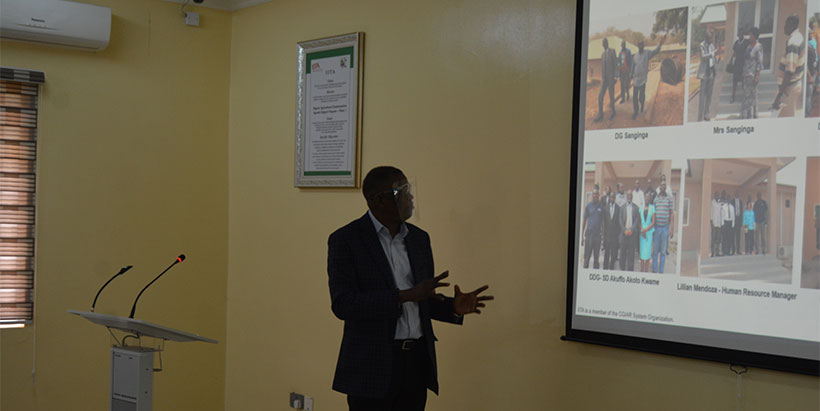
Visit of ECOWAS Directorate of Agriculture to IITA-Abuja reignites partnership
The Director of Agriculture and Rural Development of ECOWAS, Alain S.Y. Traore, and other members of staff visited IITA–Abuja to familiarize themselves with the activities of the Institute in the Nigerian capital. The visit is the first despite both offices being in Abuja for many years.
The Head of IITA-Abuja, Gbassey Tarawali, and the scientists at the station organized an interactive session for the ECOWAS delegation to showcase the different projects operating there.
In his welcome remarks, Tarawali expressed delight about the visit, the first since the inception of IITA Abuja Station in 1991. He said he hoped the visit would facilitate increased collaboration between IITA and the ECOWAS Directorate of Agriculture.
Tarawali, who also coordinates the ATASP-1 Outreach Program, highlighted the objectives of the project and its key achievements. ATASP-1 has developed critical infrastructures such as the construction of three Youth Training and Crop Processing Centers in Abuja, Kano, and Onne, as well as built three world–class modern tissue culture laboratories in Ibadan, Abuja, and Onne.
The Africa Yam Project leader, Patrick Adebola, spoke about enhancing yam breeding in West Africa to increase productivity and improve quality. He also emphasized some of the support required to strengthen the IITA yam breeding program. IITA Yam Seed Systems Specialist, Beatrice Aighewi, also gave a presentation on the development of yam seed systems in Nigeria and Ghana.
The West Africa Commercialization and Agribusiness Manager, Peter Okomoh, spoke on aflatoxin and its impact, and the work on Aflasafe™ that is fighting this scourge. He highlighted the strategic direction and progress of the Aflasafe Technology Transfer and Commercialization (ATTC) project and underscored the project goals, objectives, and implementation approach.
Zacchaeus Isuwa, an Agripreneur, gave the final presentation on IITA Youth in Agribusiness initiatives, emphasizing the importance of the program as a potent vehicle for youth empowerment and employment in Africa.
In his response, the ECOWAS Director of Agriculture thanked the Head of Station and the scientists for the warm welcome and detailed presentations. He commended the Institute for its achievements, noting that the next hurdle is how to take these results from the research labs to the end–users.
Director Traore also noted that the existing MoU between the two organizations should serve as common ground for achieving impact. The Director encouraged IITA, as a center of knowledge, to take advantage of the many opportunities that abound in ECOWAS. Tarawali assured him that IITA would look for opportunities of working on collaborative initiatives.
The delegation embarked on an extensive tour of the station, stopping over at the yam screenhouse, the yam, maize, cassava, soybean, and cowpea demonstration plots, and the IYA fish ponds.





